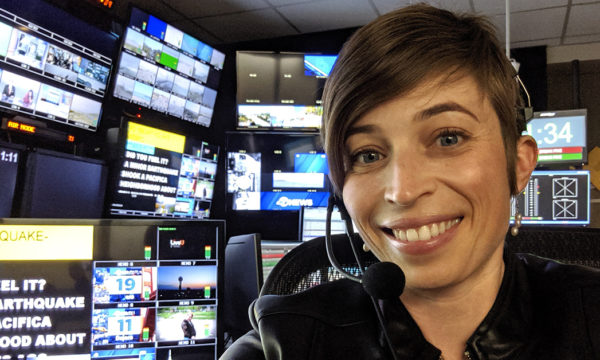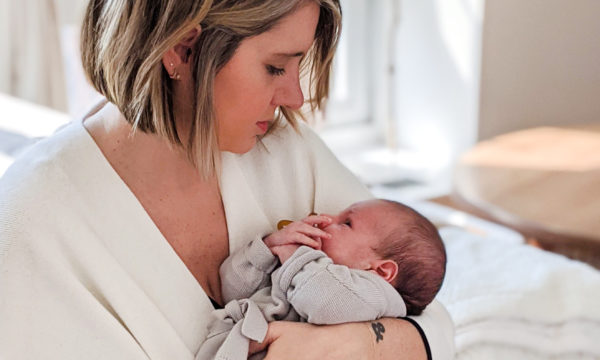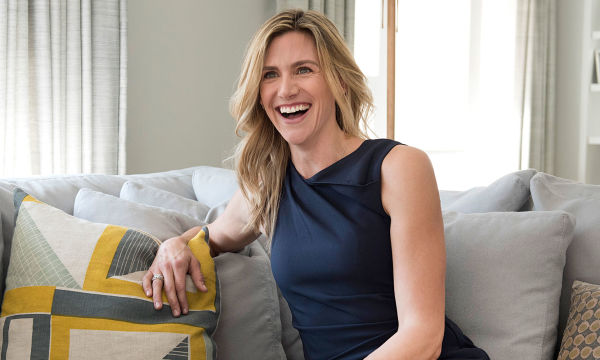
On the Front Lines with Epidemiologist Jennifer Nuzzo
In our new "On the Front Lines" series, we catch up with inspiring members of the M.M. community who are leading the fight to understand and contain the coronavirus pandemic.
We’re always in awe of the women who make up the M.M. community, but in the last few weeks, we’ve been especially inspired by the stories of those who are on the front lines of the fight to understand and contain the coronavirus pandemic.
We recently caught up with epidemiologist Jennifer Nuzzo, who is an Associate Professor at Johns Hopkins and a Senior Scholar at the Johns Hopkins Center for Health Security. Pandemic preparedness is her specialty, so it’s no surprise that the media regularly turns to Jennifer for her expertise in the midst of this unfolding crisis. Below, she shares her perspective.
Want more M Dash?
Sign up for our weekly newsletter.
Thank you!
Tell us about your work. How does it relate to the current crisis?
I work on global preparedness, global policy, and U.S. policy when it comes to epidemics, and I’ve been working in this field for 20 years. This past summer, a team that I lead was asked to put together a report for the Global Preparedness Monitoring Board, an independent body that’s staffed by the World Health Organization. Our report was called “Preparedness for a High-Impact Respiratory Pathogen Pandemic.” I also worked on the Global Health Security Index, which was published in the fall. So last year, I was working on a number of projects that dealt with this very topic: What do we do if there’s a big, fast-moving pandemic? Are we ready? What do we need to do to get ready? I had a nice break over the holidays, and then as soon as I got back to work in January, we started hearing about the outbreak in Wuhan, China.
How did your day-to-day change once it was clear this was a global pandemic?
We started keeping tabs on the situation in Wuhan. Once it was clear that this virus had the potential to spread globally, things hit a fever pitch really quickly. I was asked to testify in Congress on very short notice, and I wrote a number of op-eds and did media appearances. For a while, there was a real absence of information in the media, and people were just desperate for more details. So my colleagues and I who do media felt strongly that we needed to provide information so that people could make decisions about their families. I was cramming a lot into a number of really long days. But what I was called on to do isn’t even comparable to the doctors, nurses, and health workers who are now doing 13-hour shifts and literally putting their lives on the line to treat people—and all without the basic protective equipment they should have.
What does it feel like to be summoned as an expert in a moment like this, when the world wants answers that may not exist?
Those of us who have technical skills and experience working on these issues just try our best to make sense of what we’re seeing. Personally, I feel it’s better to make predictions based on what I know in the moment, recognizing that I could be wrong, rather than to just say, “I don’t know, I don’t know, I don’t know.” That doesn’t help anyone. We have to make decisions based on the information we have. But sometimes I have moments where I think, “There must be someone who has the answer to this.” But when you’ve been working in a field for 20 years, you realize, “Oh, that person is me. I guess I’m the grown-up in the room.” I’ve had a weird experience where I’ve seen headlines and thought, “This looks interesting. I want to read this because I want to learn more about this topic.” But then I realize that I’m the one quoted in the article.
It’s so easy to spiral between news outlets. Where do you recommend people go for reliable information?
“Spiral” is a good word for it. I want people to stay educated and informed, but you can get really spun up if you listen to the news all day. Try to stick to official sources, and these days, I think the best ones are local: your local health department, your governor’s office, your local medical center. Go to medically trained people for medical information. I think the media is doing their best, but this is a hard topic for journalists to cover, and there’s a lot of misinformation out there, particularly about treatments and risk factors. When it comes to medical information, it’s so important to stick to authoritative sources.
For those of us who are at home, what can we do to feel useful and calm our anxiety?
I totally understand that the actions we’re all taking to prevent this virus—staying home, washing our hands, covering our coughs, keeping a distance from sick people—can feel sort of underwhelming. People are looking for ways to empower themselves in a situation where many feel powerless. If there’s any lesson that comes out of all this, it’s that our health is one of the most precious things we have. So if we’ve been taking our health for granted, or even if we haven’t, now is a good time to make changes: eat better, exercise more, get enough sleep. Taking care of our bodies is so important, and that’s something you can start doing right now.
Speaking of which, what have you been doing to take care of yourself?
In all of the insanity of the past few months, I had gotten to a point where I was mitigating my anxiety by staying up really late and writing op-eds. Not good. But I’ve recently gotten back into healthier habits. I’m lucky to have a Peloton at home, which I’m so grateful for now that I can’t leave the house. The instructors are very motivational and reassuring. There are lots of classes you can take for free on their app, even if you don’t have a bike. I use their meditations to help my kids fall asleep when they’re out of sorts. So that’s my outlet for my anxiety now, rather than staying up until 3am or 4am writing opinion pieces.
Like many people, you’re now working from home while taking care of your kids. How’s that going?
My kids are seven and three, and last week was total chaos. We had no plan. So this week, I created a schedule so my kids can get some level of structure and stimulation—beyond just fighting with each other. Luckily, my husband is also working from home, so we’re tag-teaming, but it’s still hard to be productive. So many parents are in the same boat right now. We’re all doing our best under the circumstances, but kids don’t thrive when they’re not in school.
How does it feel to be putting your professional training to use in such a pivotal cultural moment?
I think it’s a natural human tendency to want to feel useful and to know that your work has relevance, but it’s never good for this type of knowledge to be in such high demand. When you work in my field, there’s an underlying belief that your knowledge will be useful someday when something like this occurs. But believing it and actually living it are two different things. This event is life-changing. It’s up there with 9/11, which was pivotal for me. I was in my early twenties then, and it was the first time I felt, “Oh, I’m experiencing something historic that’s going to change the arc of society.” This feels like that.
What’s your biggest worry right now?
That we haven’t come up with a way out of the situation. The measures that we’re taking now—flattening the curve, social distancing—are things we need to do to get a handle on the situation and slow it down, but it’s not a permanent fix. We need to figure out a way to return to normal life, because I don’t think society can maintain this way of life for months. We need to work and socialize and have elections—and we need to be able to do those things without crashing our health system.
What’s your greatest hope?
I hope we can put enough pressure on our leaders to find a coordinated response. I’ve been really impressed by how much individual citizens are willing to roll up their sleeves and try to help. There are entrepreneurs trying to 3D-print ventilator parts, and people are sewing masks to donate to hospitals. When faced with a crisis, people really come together. That said, there are some things that are out of individuals’ hands. I hope our government will figure out how to supplement and coordinate all these efforts.
What’s bringing you joy these days?
My kids. It’s hard to get work done with them around, but they’re a great distraction from all of this. They actually have a stuffed coronavirus microbe that they got during another project I did. So they are aware of the concept of a virus. We don’t have the news on at home, but occasionally, my seven-year-old comes forward with an idea that he thinks is going to solve the problem. He’ll be like, “We need to do more testing!”, which he probably picked up from hearing me on the phone.







